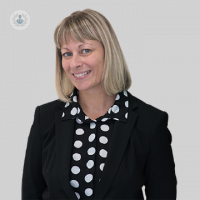Understanding developmental delays in children
Written in association with:A child’s development is marked by achieving skills in different areas, such as learning to walk (motor) and talk (speech). A developmental delay does not just mean that a child is slow to develop, but that they are continually behind in the skills that they should have acquired by a certain age.
Here, we’ve asked leading clinical geneticist Dr Melita Irving to explain more, including how to recognise if your child has developmental delay and the outlook for the condition.

What is developmental delay?
Developmental delay can be benchmarked against the time children take, on average, to reach milestones and acquire skills. There tends to be a range of time over which a child might be expected to meet the milestones. For example, usually, children will be walking independently sometime between twelve and eighteen months. When children fail to meet these expectations, developmental delay is suspected.
In which areas can children have developmental delay?
Development can be divided up into different areas or domains, namely motor, speech and hearing. And the motor domain can be subdivided into fine and gross motor skills, such as using a pincer grip and crawling, respectively. As children get older, cognition and intellect come into play as well. Can they follow simple instructions, for example, or can they read and write?
How can I recognise if my child has developmental delay?
If you are worried that your child is not showing the skills of other children of the same age, then they may have developmental delay. There is a range of normal though, so children can be slower in some areas and quicker in others, but if they are consistently missing milestones, then there may be an issue.
Are there different types of developmental delay?
Some children with developmental delay may be missing milestones across several different domains. This is known as global developmental delay. Alternatively, they may have a delay in just one area, such as speech. And there can be differing severities of developmental delay, from mild through to moderate, and from severe to profound. There may even be a specific pattern to the delay, as we see in the autistic spectrum.
What are the causes/risks factors?
There can be many different reasons behind a child having developmental delay, ranging from chronic ill health, adverse environmental factors and genetic defects. Some children may have an underlying chromosomal imbalance, with a major alteration in the pattern of the chromosomes – material missing (deleted) or added on (duplicated).
Damaging alterations in the genetic code may lead to a syndrome, in which there can be multiple problems affecting a child, including developmental delay. Sometimes there can be a family history of delayed development or learning difficulties (loosely referred to as ‘dyslexia’ by some), but there may not be.
What is the outlook?
It is important to detect whether a child has developmental delay because of a chromosomal defect or genetic syndrome for a number of reasons. Both of these can bring with them additional concerns about a child’s condition, for example, they might also have congenital abnormalities or problems with their general health, like growth.
In addition, there may (or may not) be repercussions for other family members, their siblings or more distant relatives, who might also need testing. Finding out if developmental delay is part of a genetic syndrome or has a chromosomal link can bring with it benefits.
It can help secure an EHCP (education and healthcare plan) and make sure the children get the input they need to help them reach their full potential. This is where a clinical geneticist can help.
Book an appointment with Dr Irving today if you’re concerned that your child is showing signs of developmental delay.


